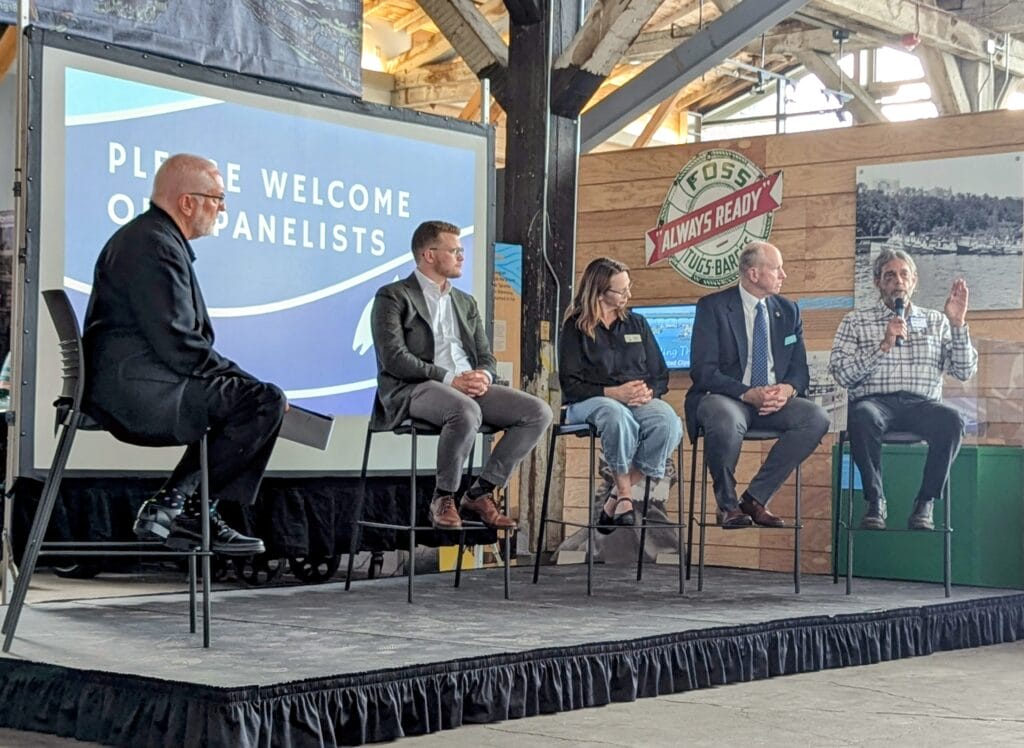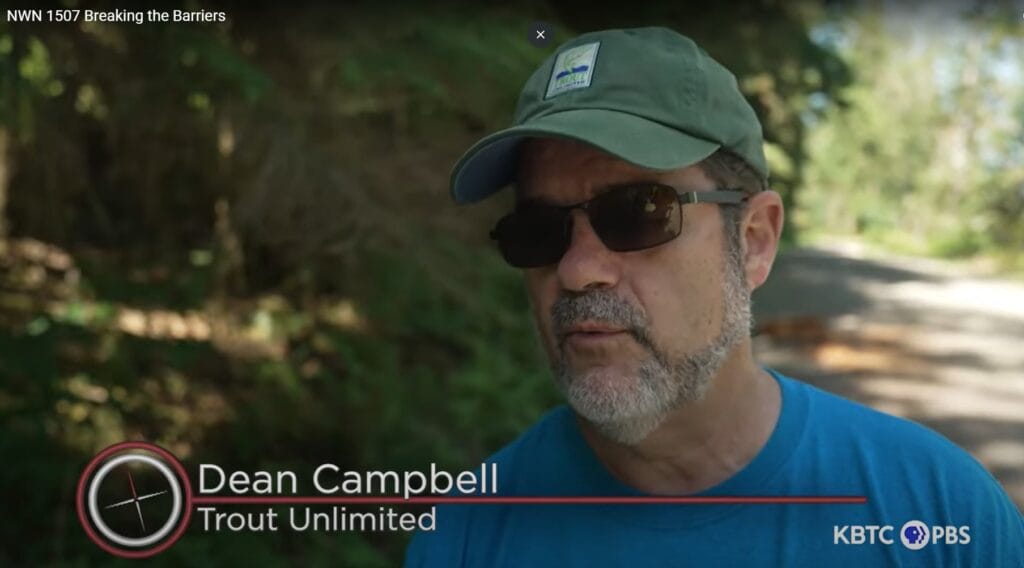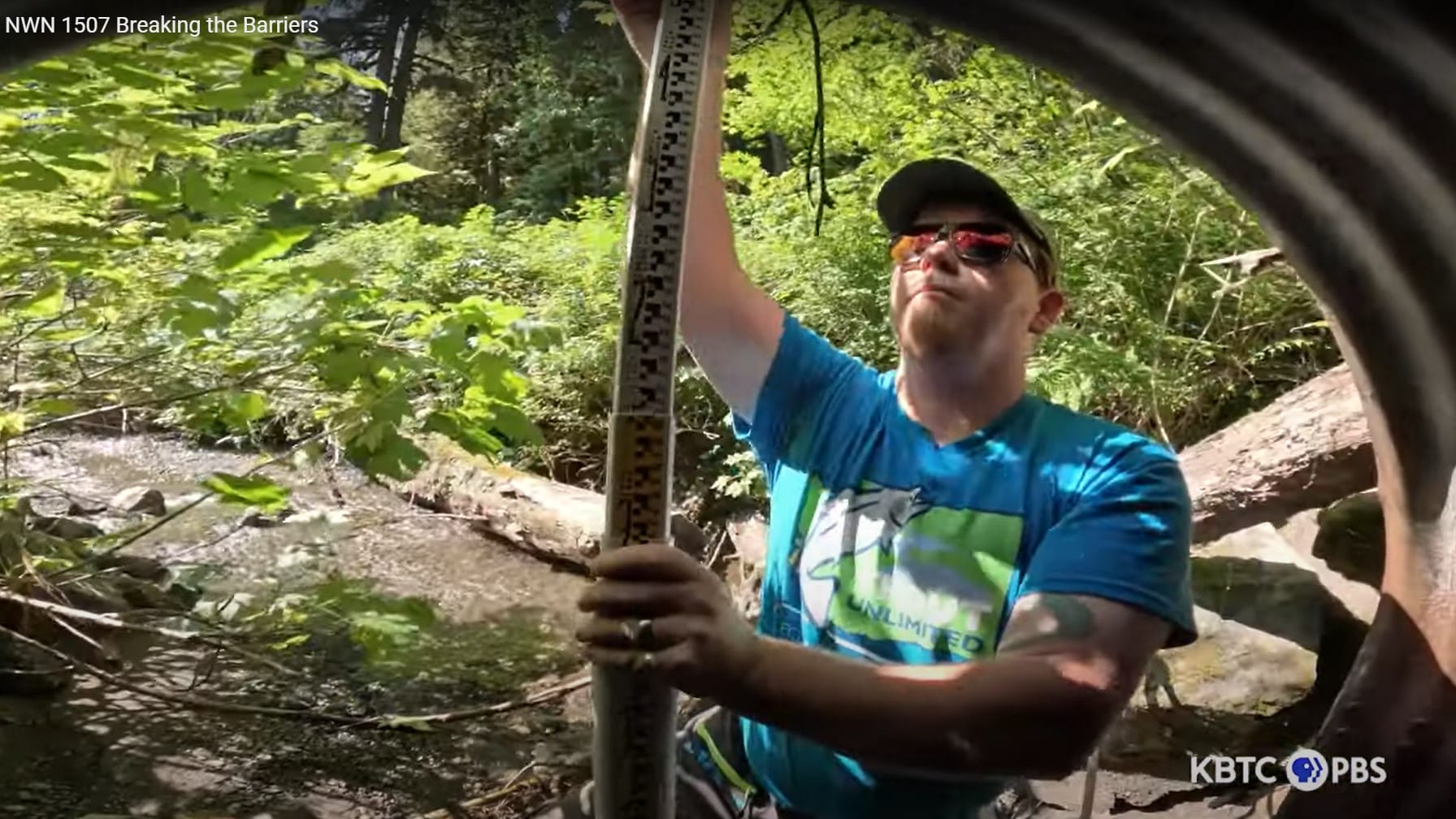In Washington state, TU volunteers on the Barrier Assessment Team (BAT) train and work alongside staff to document and measure failing culverts acting as migration barriers for salmon, steelhead and other native species.

The program works with state, federal, county and tribal partners to understand which culverts have the biggest impact to road safety, flood resilience and hydrological function. They also assess which barriers to fish migration could provide the best access to high-quality upstream habitat and cold water resources if they are removed or replaced with better structures.
The dedicated volunteers in the program provide critical data collection that might not otherwise happen and take great care to ensure the work they are doing meshes with the protocols used by state and federal agencies to accurately assess Aquatic Organism Passage (AOP) structures.
The BAT program was celebrated in a recent episode of KBTC Public Television’s Northwest Now called “Breaking the Barriers.” The episode looked at several efforts across Washington waters to ensure migrating salmon and steelhead can reach upstream spawning and rearing habitat and survive their journey out to the Pacific Ocean as juveniles. Restoring struggling salmon and steelhead populations depends on reconnecting these migration corridors.

This spring, at an event called the “State of Salmon,” guests attending the Tacoma Ocean Fest joined Northwest Now host Tom Layson for a public screening of “Breaking the Barriers” and a panel discussion. Steve Miller, the founder of the BAT Program and chair of the Washington Council’s conservation committee, was invited to join the panel.
Clearing the Way
The BAT Program includes a wide range of TU volunteers working in many Priority Waters across Washington. Their partnership with the United States Forest Service has already led to key culverts being replaced in the White River watershed and helped launch a landscape-scale restoration effort focused on protecting spring chinook, wild steelhead and other native fish in South Puget Sound.
Interested in learning more about these inspiring volunteers and their collaboration with TU staff and other partners? Last year, the Washington Council debuted a short film about the BAT Program at CX3 in Spokane, Washington. You can watch “Clearing the Way” on the council’s homepage.



